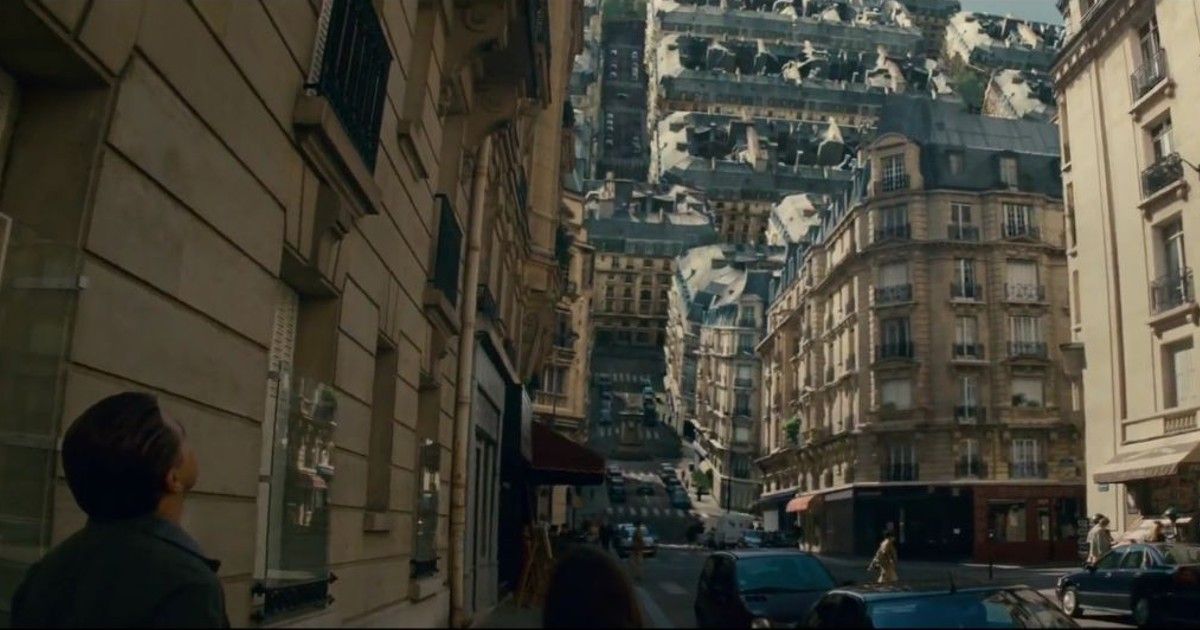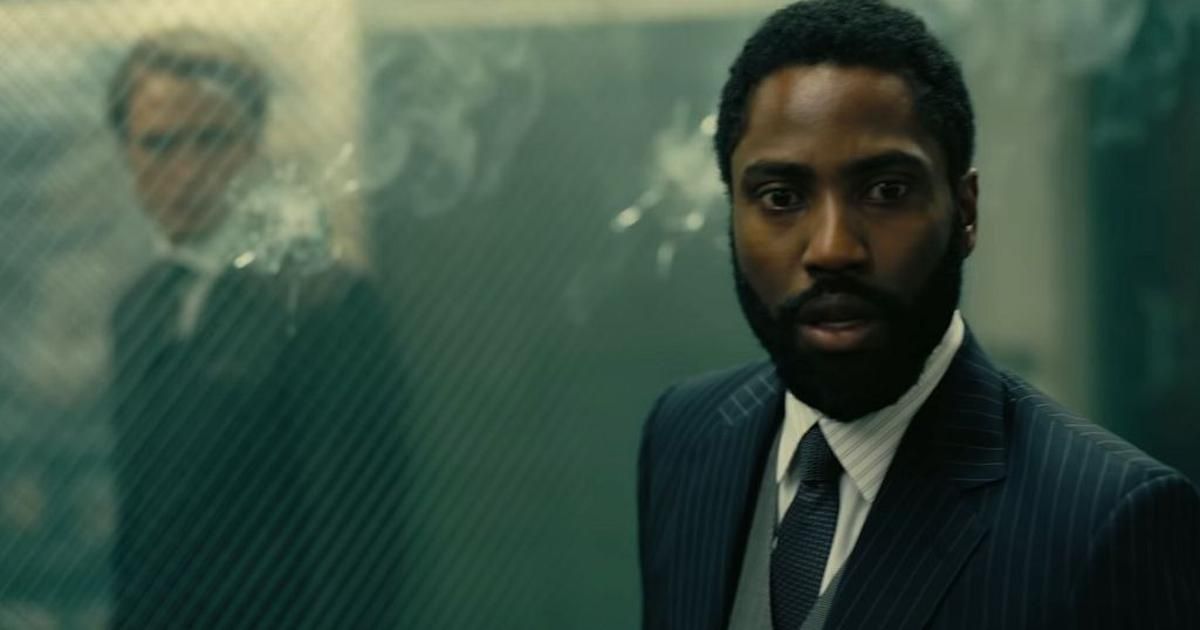Christopher Nolan is one of the very few directors who is a brand in and of himself. His name being attached to a movie is enough to sell audiences on the idea of a film that he is leading the production of. The director reinvented Batman for the 21st century with his successful and influential Dark Knight trilogy and used that clout to turn original ideas like Inception and Interstellar into box office smash hits at a time when franchises, reboots, and sequels were taking over the industry.
After departing longtime studio collaborator Warner Bros. following the studio's decision to release their entire 2021 slate on HBO Max and in theaters, the director's next project Oppenheimer became a high-profile project with multiple studios bidding for it. Universal Pictures won the rights to distribute the film and met all the director's requests and needs.
Updated July 14, 2023: Oppenheimer is a week away, and this article has been updated with even more information about director Christopher Nolan's use of sound in movies.
Anticipation for Oppenheimer is very high, and the movie has become one of the most anticipated movies of this calendar year. How could it not be? It is a Christopher Nolan film. Yet based on the trailers shown for the film, anyone who has seen a Christopher Nolan movie in the past ten years is likely worried about the sound mix. In recent years, Nolan's work has been criticized for an overbearing sound mix which can make dialogue unintelligible and the sound so loud and cacophonous that it can make it difficult to enjoy the movie. Given that his next film is about a man who was responsible for the creation of the atomic bomb, it is almost a guarantee Nolan will feature an explosive wall of sound that could shake theaters. Yet why has the director gotten so ludicrously loud?
It Starts with Inception
Most of the loud sounds people associate with Christopher Nolan movies starts with Inception. It was a total game-changer in a lot of respects. Inception became known as a tidal wave of sound solely from the trailer alone, which featured the now iconic loud blast of bass, often dubbed "The Inception noise." That trailer not only redefined movie marketing for the better part of a decade but would become an indicator of the sound of the film. While the iconic trailer sound is not actually heard in the film's sound design, Inception does crank up the volume in action and heavy VFX scenes, particularly when Ariadne (Elliot Page) discovers they are in a dream.
Composer Hans Zimmer's iconic Academy Award-nominated score is also put on high in many sequences, particularly in moments that are meant to connect the three levels of dreams. Inception won the Academy Award for Best Sound Editing and Best Sound Mixing, so it appeared to work. However, that kicked off the director's next decade of questionable audio choices.
Nolan Doubled Down For Almost a Decade
When audiences saw the opening prologue for The Dark Knight Rises attached to screenings of Mission: Impossible - Ghost Protocol, one common criticism regarded the dialogue around the character Bane (Tom Hardy). Many had a very difficult time making out what the character was saying as it appeared the director had used audio filmed on set with the actor wearing the mask instead of dubbing over in post. Nolan originally stood firm and said audiences would be able to understand Bane when the film was originally released, and they did — but only after what appeared to be a rerecording of Hardy's Bane dialogue to make it clearer.
Two years later, Nolan released Interstellar, and many critics noted how the music would be so overwhelming it would drown out the dialogue of the movie. Dunkirk revolved around gunfire, ships, and bombs which meant the film had a very loud sound mix. Tenet appears to be the ultimate tipping point in which most audiences may have had enough; the common criticism of the movie was not about the plot mechanics but how difficult it is to make out what any of the characters are saying in Nolan's sound design. While it did not help that most audiences saw it at home instead of a proper theater with a high-caliber sound system, watching at home should still be a viable option because movies don't play in theaters forever. So the question is, why exactly are Nolan's films mixed this way?
It's Christopher Nolan's Intent
Nolan has spoken about sound design in his movies and said that other filmmakers have even complained to him about sound design in his movies. Regarding the sound in Interstellar, Nolan defended the film's sound mix by saying:
"I was a little shocked to realize how conservative people are when it comes to sound. Because you can make a film that looks like anything, you can shoot on your iPhone, no one’s going to complain. But if you mix the sound a certain way, or if you use certain sub-frequencies, people get up in arms.”
It appears that, just how James Cameron wants to push the boundaries of film technology, Nolan is also interested in pushing the boundaries of sound or at least experimenting with and tweaking the form. This makes sense for a director who experimented with film structure in Memento or the nature of superheroes in his Dark Knight trilogy. Perhaps this is just the natural next extension of that mindset. Yet experimenting with sound is a tricky one, and one that is a creative gamble that is likely to yield a lot of mixed responses. However, that is what is great about movies. Everything is open to one's own interpretation.
Why Is Sound Criticized?
Films are a visual medium. Filmmakers train in visual storytelling, and that is because that is the one sense you can't make a movie without. Yet the sound is just as important to a film. What is heard or not heard is important. While modern audiences are accustomed to having sound in a movie, silent films were a thing way back when. Maybe that is why Nolan is one of the few filmmakers who want to experiment with sound so much but does making everything louder actually add anything positive to a film?
In some ways, yes. Despite the sound in Nolan's films being particularly hard to understand, it is hard to argue with the box office numbers. While audiences are likely frustrated, they are still captivated and keep returning to his work time and time again. Nolan is one of the few filmmakers who can take original ideas like Inception and Interstellar and make them box office hits. It is hard to imagine any other filmmaker making a massive historical epic and turning it into one of the most anticipated movies of the summer season, yet he did it with Dunkirk and looks to do it again with Oppenheimer. One look at opening week IMAX showtimes for Oppenheimer show audiences are ready to have their eardrums blown out by what Nolan is delivering.
Does This Choice Work?
Christopher Nolan is correct that audiences are more forgiving of different ways of shooting a film and visual presentation, from a handheld camera (The Blair Witch), screen shares (Searching) or being shot on an iPhone (Tangerine), yet all of those movies feature crisp audio which makes up for different visuals. Audiences can forgive a lot, but if they can't hear a movie or understand it, they are more likely to check out. This is why so many viewers will now put subtitles on when watching at home, as they want to make sure they are getting the information; they assume that if it is being spoken, it must be important.
Nolan's experimental sound mixes, even if they are loud, would likely not alienate audiences so much if they were primarily silent films, but the director's movies tend to feature a lot of dialogue and important technical exposition. The director is a visual storyteller but does require a lot of dialogue which, when drowned out by the sound mixing, can be confusing and alienating for an audience, no matter how intentional it is. Obscuring the dialogue from a film's script with cacophonous noise almost suggests that the dialogue doesn't matter. It is saying something that the film with the least amount of criticism about the sound is Dunkirk, since that movie featured minimal dialogue and is primarily action. But when the dialogue is so important to the plot, as in Tenet, drowning it out sends the wrong (barely audible) message.
Christopher Nolan's attempts at experimenting with sound can be admirable, as there is always a chance to find a new way to relay important information to an audience. Many filmmakers have experimented with sound in particular scenes, either muffling it or dropping it out completely for dramatic effect or even increasing it for intensity, which Nolan has done well in the past. Yet, just because he is trying something new does not automatically make it good or ensure that it will always work. Based on the criticism of Tenet, one hopes that he accepted the critique and that Oppenheimer won't suffer the same fate in the long run with its box office numbers.






